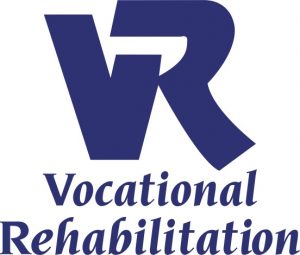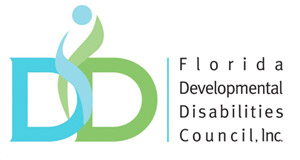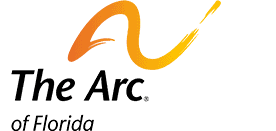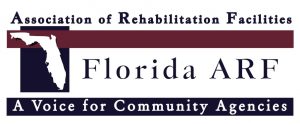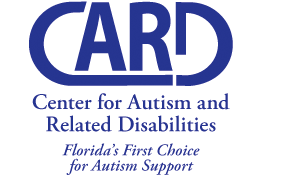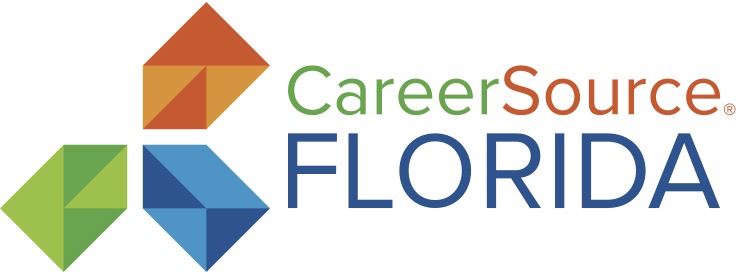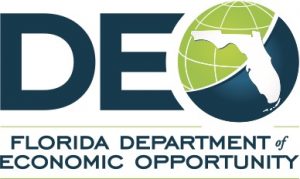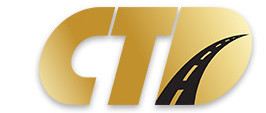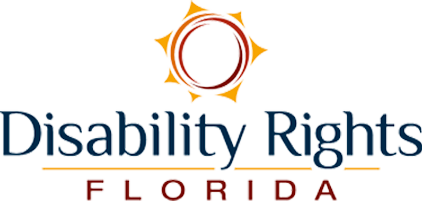Learn More about Transition in Florida
- Division of Vocational Rehabilitation (DVR)
- Florida Division of Blind Services (DBS)
- Bureau of Exceptional Student Education (BESE)
- Employment First Florida
- Agency for Persons with Disabilities (APD)
- Florida Developmental Disabilities Council
- The Arc of Florida
- Florida Association of Rehabilitation Facilities
- Florida Center for Students with Unique Abilities
What It Does:
Helps people with disabilities find, keep, or return to employment.
Recent law emphasizes:
- Youth services
- Employer services
- Coordinate state services
- Efficiency performance measures
VR encourages schools to become a VR vendor to deliver Pre-Employment Transition Services.
Pre-Employment Transition Services (Pre-ETS) expands VR services for students with disabilities ages 14-21 and when planning on postsecondary education. Includes career exploration, work readiness training, community-based work experiences, and self-advocacy training to prepare for successful employment.
Inclusive Postsecondary Education (IPSE) provides learning, work preparation, recreational, social interactions, and the development of natural supports to students with intellectual and other developmental disabilities at places of higher education.
Project SEARCH is a nationally recognized internship for employment training and education for students with disabilities. It is a business driven program that matches students with work and social skills needed for meaningful careers. It is a partnership between the business, school system, VR program and partners.
What It Does: Helps individuals who are blind and visually-impaired achieve their goals and live their lives with as much independence and self-direction as possible.
Assists young people to meet their future employment goals. Students must have a visual impairment in both eyes and require vocational rehabilitation services.
Transition services are generally provided through the Vocational Rehabilitation Program or through the Children's Program. The final goal is to ensure that children grow into independent adults.
The DBS State Office in Tallahassee oversees 15 District Offices and the Braille and Talking Book Library and Rehabilitation Center for the Blind in Daytona.
What It Does: Administers programs for students with disabilities. Additionally, provides students with special needs services and opportunities for personal and professional growth through collaboration of families, professionals, and communities. BESE has discretionary projects throughout the state to support and build capacity in districts to support students with disabilities. Be sure to click on the Grants/Discretionary Projects link on their web site to learn more.
The BESE website provides information about exceptional student education, student services, juvenile justice education, early intervention, parent and professional partnerships, and many other topics.
The website also has a special section devoted to transition from high school to whatever comes next, which might be working at a job in the community, continuing to higher education, and/or independent living.
Employment First Florida
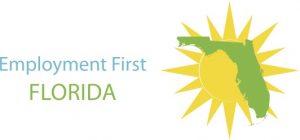
- Not a single agency, but a connected effort of partners.
- Contributed to the Abilities Work website, which lists job openings for people with I/DD.
Florida's Employment First Act says that employment should be a priority for people with I/DD. Working at a job is the best way for people with I/DD to be independent and successful. However, it is hard for many people with I/DD to get jobs. Employment First Florida works to correct this situation.
Since the creation of the law, many different agencies in Florida continue to work together to make sure the Employment First Act is put into place and followed carefully.
What It Does: Works with local communities and private providers to support people who have developmental disabilities and their families in living, learning, and working in their communities. Serves people with:
Autism • Cerebral palsy • Spina bifida • Intellectual disabilities • Down syndrome • Prader-Willi syndrome • Phelan McDermid syndrome • Children age 3-5 who are at a high risk of a developmental disability
APD goals are:
Help people access community-based services, treatments, and residential options.
Increase the number of people with I/DD who are working in their communities.
Oversee service providers and help improve the ways they deliver services.
What It Does: Advocates and promotes programs, practices and innovative initiatives that enhance the independence, productivity, inclusion and self-determination of individuals with disabilities in all aspects of life.
FDDC influences policy, services and solutions for children and adults with I/DD and their families.
FDDC supports research-based, innovative, sustainable solutions in areas such as education, employment, transportation, and long-term supports.
FDDC is also the only funded independent entity in Florida with the authority to create partnerships among all state agencies, universities, and disability organizations.
What It Does: Advocates for people with intellectual disabilities, autism, spina bifida, cerebral palsy (CP), Prader-Willi syndrome and other developmental disabilities to be fully included in all aspects of their community.
The Arc of Florida is a nonprofit organization whose mission is to improve the quality of life for persons with intellectual and developmental disabilities. We work for education, awareness, research, advocacy and support of families, friends and the community.
What It Does: Statewide, professional association that provides advocacy, information, and networking for individuals with disabilities and the community agencies that serve them.
Florida ARF members include United Cerebral Palsy, the Arc chapters, Goodwill Industries, and many of the state’s independent developmental and vocational community-based rehabilitation centers.
Florida ARF member agencies provide services to support individuals with disabilities including employment, community-based supports, residential, therapies, and education. Florida ARF also administers programs each year that result in employment of thousands of individuals with disabilities.
What It Does: Supports people with autism spectrum disorder (ASD) and related disabilities to reach their potential. Offers support and education for adults with ASD after transition.
- Provides information about an individual's disability
- Refers families to federal, state and local service agencies
- Helps families find support groups
- Supports families in planning for the future
- Provides training sessions on how to work effectively with individuals with ASD and related disabilities
- Provides consultation to caregivers and professionals on how best to work with an individual with a disability
Connects businesses with the workforce and training needed to succeed and grow.
Works to increase the success of workers and employers, reduce welfare dependency, increase economic self-sufficiency, and better worker productivity and business competitiveness.
What It Does: Administers state and federal programs and initiatives to help visitors, citizens, businesses, and communities achieve economic independence.
Promotes the state’s economic development and administers state and federal programs to help visitors, citizens, businesses, and communities. Programs to help Floridians prepare for new careers:
- CareerSource Centers
- FL Eligible Training Provider List
- FL Research and Economic Information Database
- Pell Grants
- Carl Perkins Loans
- Federal Student Aid (FAFSA)
- State Grants
- Workforce Investment Act
Supports efficient, cost-effective, and quality services for transportation disadvantaged persons. Coordinates state-wide effort which groups riders together for a shared ride service.
Transportation services are available in all 67 Florida counties for those who are eligible and have no access to transportation to medical appointments, employment, educational and other important services.
What It Does: Support to students, families, and institutions of higher education so that students with intellectual disabilities have opportunities for on-campus college experiences that lead to careers
- Lists relevant news
- Provides information on recent and upcoming events
- Helps find programs, scholarships, student resources
- Supports applying for financial aid
What It Does: Protects the civil rights of people with disabilities in Florida.
All services are free and confidential.
Legal and advocacy support of:
- Barriers to special education, transition, and post-secondary education.
- Disputes for Medicaid eligibility.
- Discrimination in housing, service animals, transportation, and access to services.
- Abuse, neglect, and rights violations.
- Rights to a least restrictive environment, privacy, choice, and dignity.
- Access to individualized mental health treatment.
- Discrimination in employment.
- Rights to accessible communication.
- Investigation of stolen or misused funds, exploitation, or neglect.
- Barriers to voting.
- Access to assistive technology.
- Supported Decision-Making as an alternative to guardianship.
